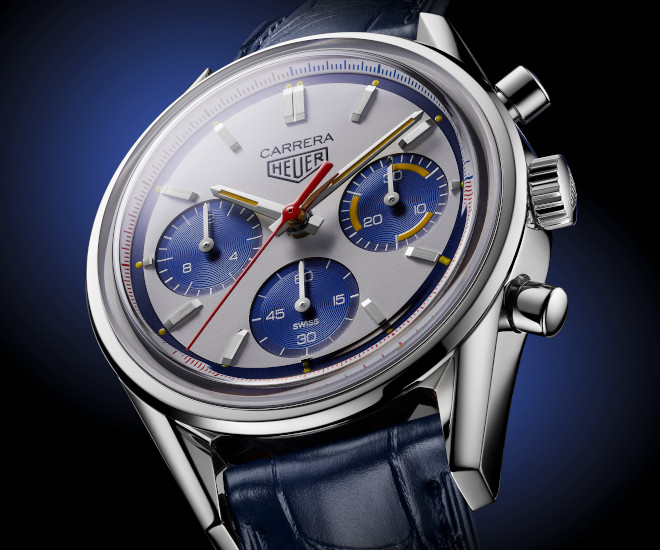77th Monaco GP — The Apogée of F1 Racing
Known for its uber tight turns and changing elevations, the Monaco GP is said to be the ultimate test of the racers’ dexterity

The Monaco GP 2019 is held on the notoriously challenging Circuit de Monaco, flanked by super-yachts berthed at Port Hercule on one side and throngs of F1 fans on the other. The atmosphere is intensified with the screech of tyres and roaring engines as the spectators hold bated breath, praying for the safe passage of the drivers around the tight bends.
77th Monaco GP: The Apogée of F1 Racing
Monte Carlo, the iconic principality of Monaco known for its hilly backdrop, cloudy blue skies, and azure waters, will be holding the 77th Monaco Grand Prix on 26 May 2019. The impressive fleet of super-yachts berthed at Port Hercule presents a mirage of Monte Carlo’s ostentatious opulence (given that 1 in 56 citizens have net worths of at least $30 million) but nevertheless, the picturesque landscape is still a natural sight to behold beneath the gilt and glitter.
That said, the pleasantly scenic landscapes and iconic skylines at every turn often distract from one crucial fact: Circuit de Monaco—running 78 laps through Monte Carlo and along Port Hercule of La Condamine, clocking 260.268km—is considered by F1 veterans to be the most perilous of Grand Prix circuits.

One of the uber tight turns in the Circuit de Monaco. Visibly, the tracks are pretty narrow as well, making overtaking exceptionally challenging.
Narrow, undulating tracks and ultra tight meanders of the circuit compel even the best racers to be contented with a top-speed of 290km/h and an average speed of 160km/h, compared to the regular Grand Prix races that often yields top speeds above 320km/h. Hence, overtaking, often a crucial and crowd pleasing spectacle of skill, becomes virtually impossible during the Monaco GP save for the most masterful of racers like six-times Brazilian champion, Aryton Senna. At its most uncompromising hairpin turn, it forces Formula 1 racers to slither through at 48km/h to avoid a deadly collision.

The disastrous fiery crash in the Circuit de Monaco between Nelson Piquet and Richard Benetton in 1985.
In life as in F1, catalysts are required for certain safety measures to be implemented. Take it from Nelson Piquet, the three-times Brazilian F1 World Champion. In 1985, Riccardo Patrese’s Benetton and Nelson Piquet’s Brabham wounded up in a fiery crash, but, thanks to their polished driving skills, both racers did not sustain serious injuries. Prior to 1969, the Monaco GP took place on regular roads without safety barriers—one wrong move might send drivers crashing into a bus stop or taking flight the Mediterranean.
The Circuit de Monaco was aptly described by Nelson Piquet as, “riding a bicycle in a living room”, who added that, “a win there is worth two anywhere else”. Indeed, this treacherous 3.337km route is the ultimate test of driving dexterity and only the finest racers may emerge victorious, and unscathed. What it means for the 110 million viewers is that it guarantees an action-packed extravaganza, amplified by screeching tyres and burning asphalt.

As a matter of heritage, the famed Monaco F1 Grand Prix took roots in 1929. Half a century ago, motorsports adopted the tradition of champagne spraying and this year, F1 Monaco ups the ante. The victor luxuriates in €1,900 bottles of Champagne Carbon. Notably, Champagne Carbon’s bottles will be made using the same carbon fibre used for F1 cars—a symbolic gesture alluding to F1’s and Champagne Carbon’s rich legacies of superior craftsmanship.

With a €3,800 ticket, one may have a 360° view of the race against the backdrop of the azure blue Mediterranean Sea.
On the race day, 26 May 2019, Monte Carlo will be rumbled by mighty engines and proudly crown its victor on the ultimate pedestal of racing. This is a spectacle not to be missed. You can catch the Monaco leg of the Formula 1 Grand Prix through your local television service provider, Singapore subscribers of Singtel or Starhub will be able to catch it as well. Well-heeled or hardcore fans can opt to purchase a 2 day ticket at €3,800 to watch the race live on a yacht. It’s the ultimate way to experience the 77th Monaco GP thanks to the yacht’s panoramic view and 360° unobstructed acoustics of the action from the water.









